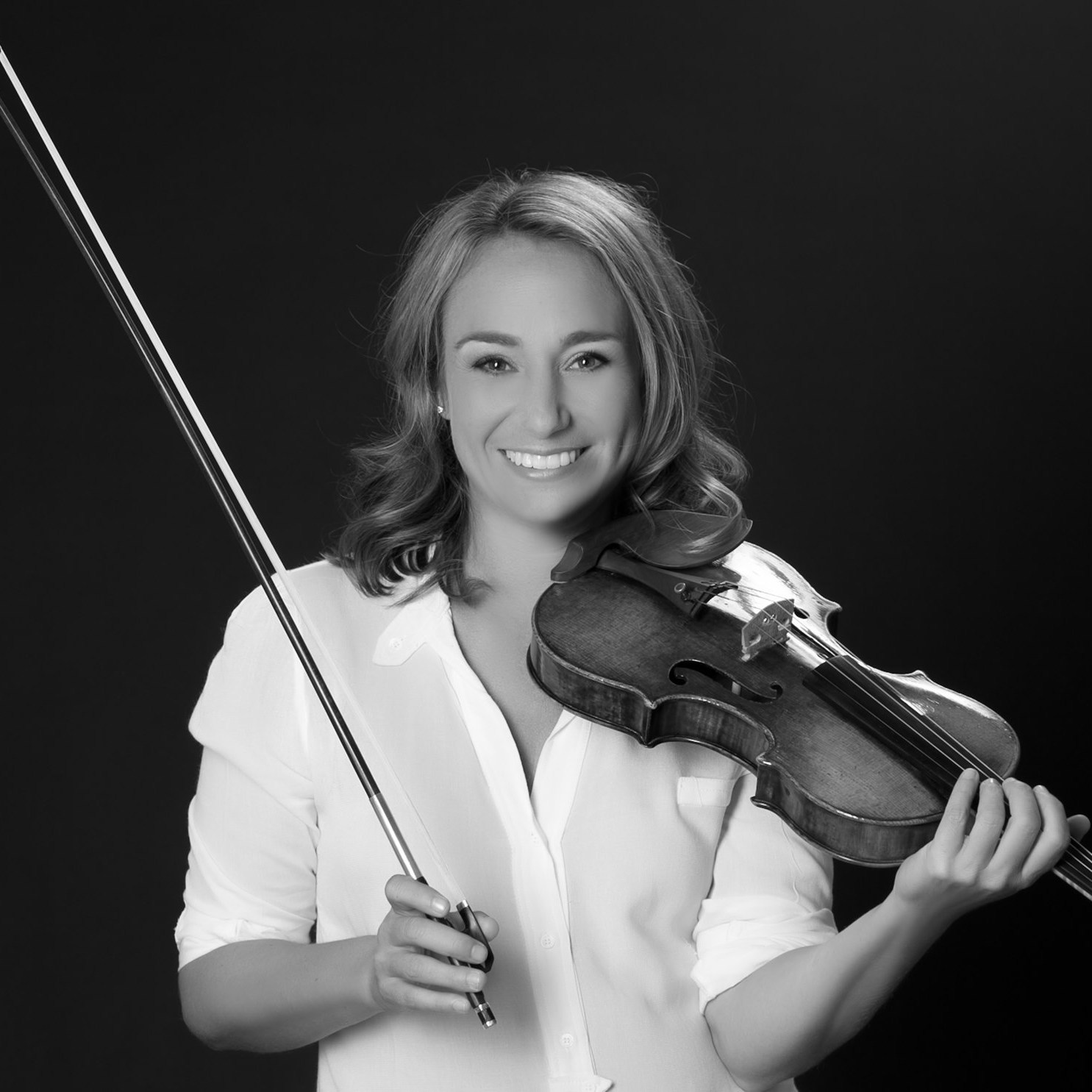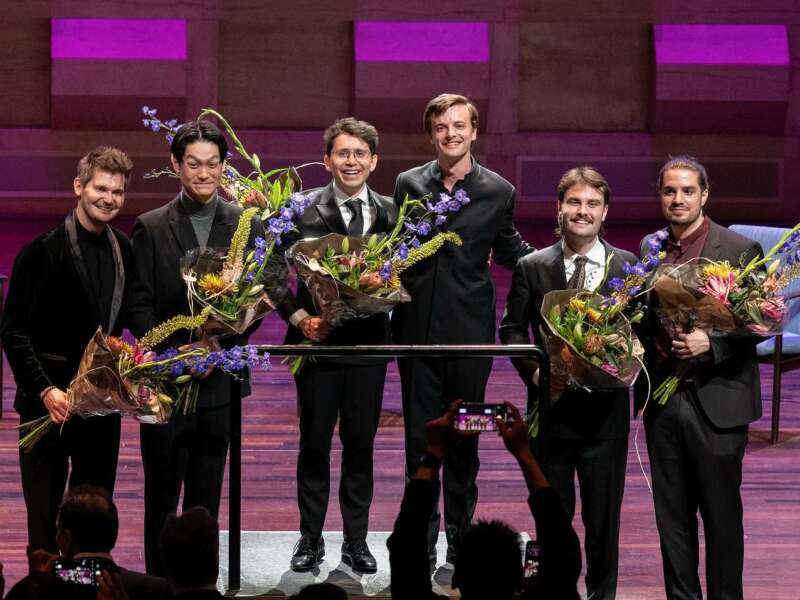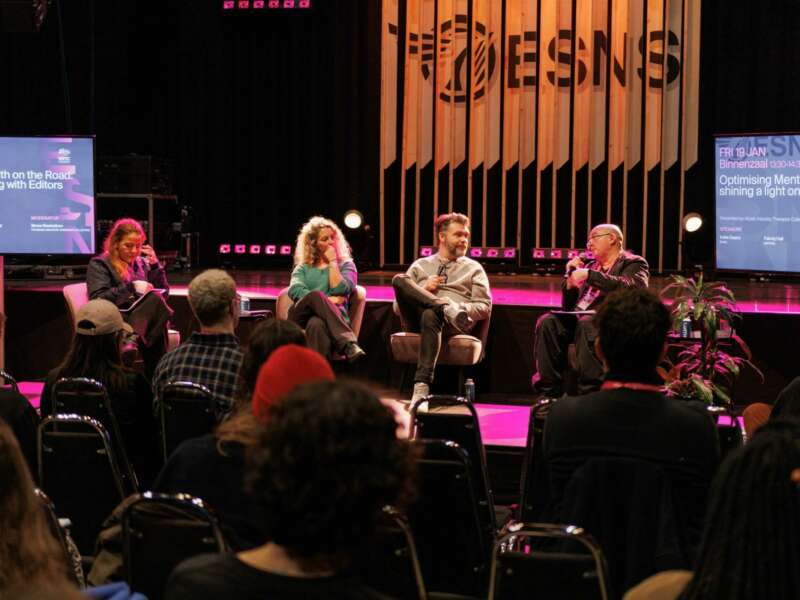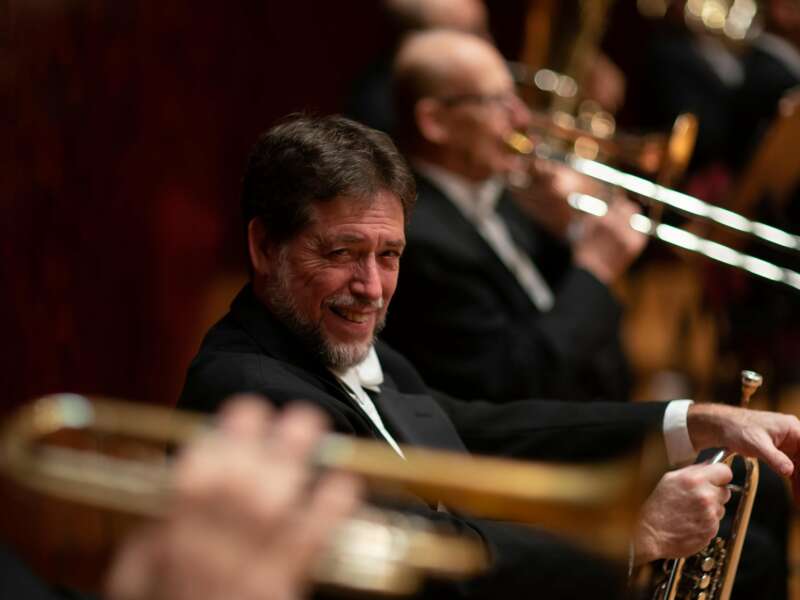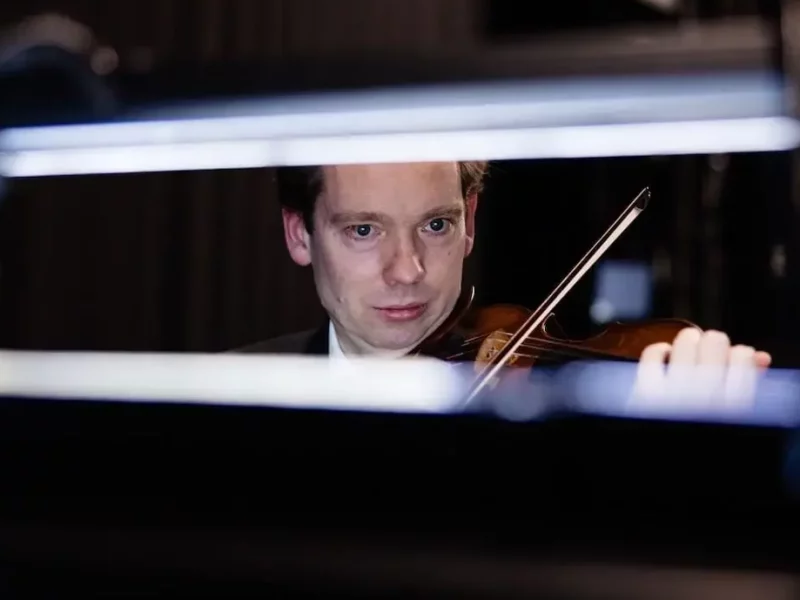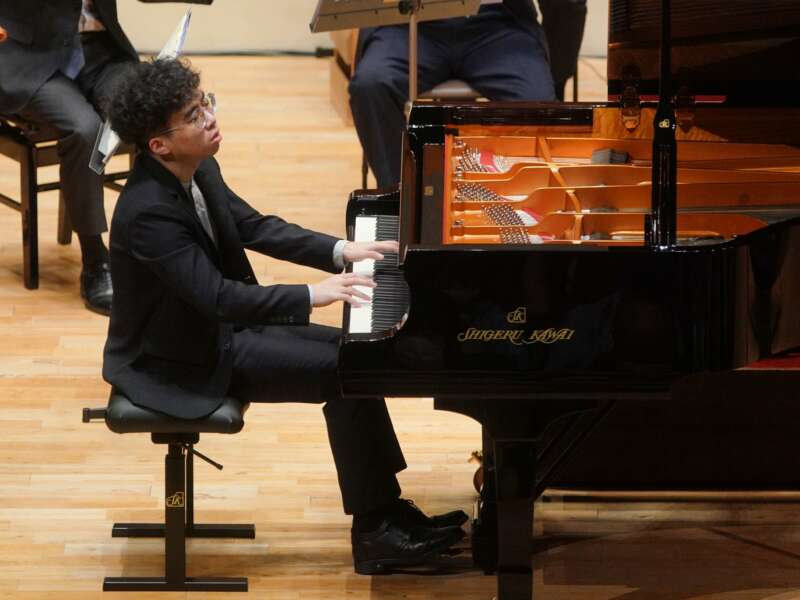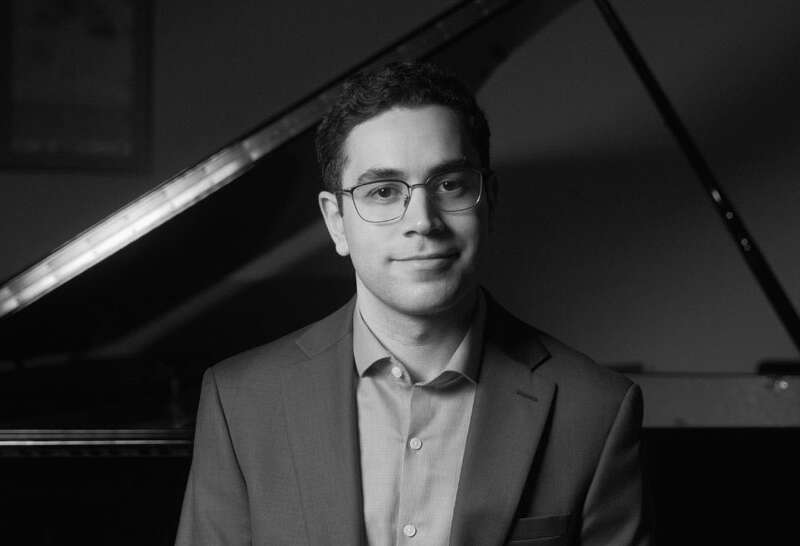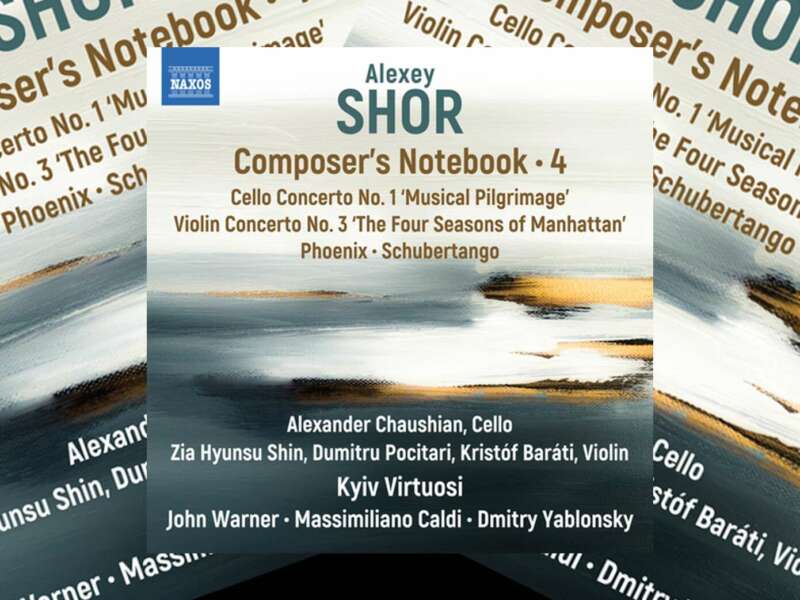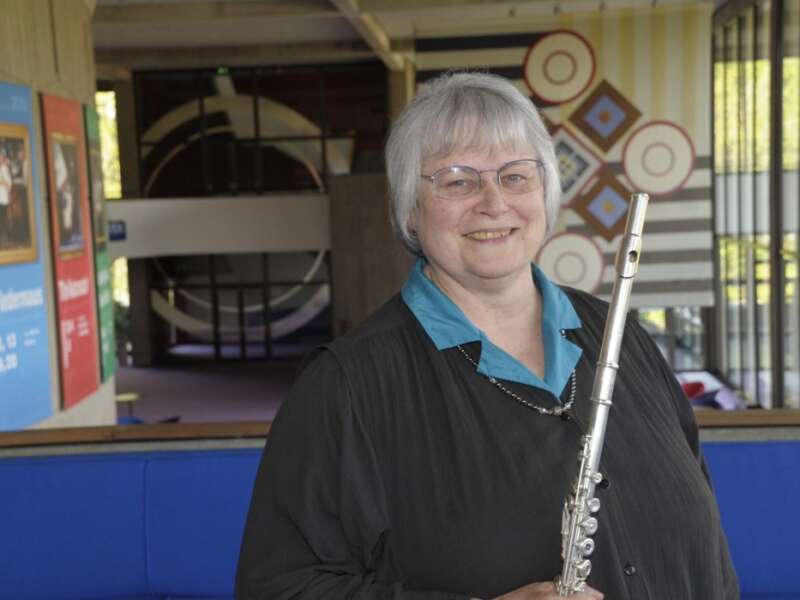Violinist Aline Champion on the Villars Music Academy's Holistic Approach
Held in Switzerland, the academy is open to violinists, violists, and cellists over the age of 18, and will accept applications until April 15, 2025
In collaboration with Switzerland’s Villars Institute Foundation, the Villars Music Academy was founded in 2022 by violinist Aline Champion to support emerging artists globally with masterclasses taught by world-leading musicians.
With its fourth edition taking place from August 17–24, 2025, the Academy is open to violinists, violists, and cellists over the age of 18 who are not yet working a fixed job. The application deadline is April 15, 2025.
In the program, participants will be offered public performances with members of the Berlin Philharmonic and group coaching from experts in fitness and psychology. This year, the program’s guest professors are violinist Kolja Blacher, violist Nils Mönkemeyer, and cellist Gary Hoffman.
We caught up with Aline Champion to learn more about the program and her philosophy on holistic music education:
What do you think it means to be a musician in today’s world?
Music creates shared experiences that connect people—with their emotions, with themselves, and with others. A concert is a space for collective feeling, a moment of deep connection and unity.
In an increasingly fast-paced, digital world, this togetherness is more valuable than ever. Music slows us down, brings us into the present, and reminds us of our shared humanity. That’s why I deeply believe musicians are essential in creating meaning and connection in modern life.
What is unique about the Villars Music Academy compared to other summer masterclasses?
At the Villars Music Academy, we embrace a holistic and systemic approach to music-making. Alongside intensive masterclasses and chamber music with our professors, we offer physical and mental training, as well as expert talks with faculty and guests.
Our program is designed to address the whole person and nurture each individual in a comprehensive way. It’s a place where music meets personal growth, in an environment that values exchange and inspiration, and human connection.
How did you select your faculty and guest artists?
For me, the best learning happens through embodiment and energy. Our faculty are exceptional artists and teachers, as well as individuals who carry strong values and a deep commitment to sharing them.
They serve as role models—musically and personally—who inspire through their presence, their approach to music, and their generosity. Learning from such musicians is a life inspiration!
Can you tell us about the special talks you offer? What topics are you covering this year?
These talks are much loved by our students! They offer a space for reflection, inspiration, and open conversation on essential aspects of a musician’s journey.
We address practical topics such as work organization, concentration, stress management, and stage presence. We also discuss artistic identity, confidence, resilience, and personal expression. Our guests share their own experiences, allowing students to gain insights into their personal way of thinking and being.
These moments create valuable exchanges, providing students with tools to transform both their playing and their artistic mindset. In an atmosphere of trust, they can ask questions, share their thoughts, and find inspiration to shape their own path.
Why is it important to you to focus on nutrition, fitness, and psychology within this context?
As a violinist and certified performance coach with a background in psychology, I have always been fascinated by the connection between mind, body, and artistic expression. Many principles from sports psychology and neuroscience are highly relevant to musicians.
Playing an instrument at a high level requires technical and musical skills, but also awareness, balance, and a strong mindset. The way we prepare, move, and think directly influences our performance. By integrating these elements into our program, we give musicians the tools to develop their full potential.
What are the core aspects of being a musician that might be overlooked by many?
To me, being a musician is not just about playing well; it is a way of being. Technical skill and musicality are part of a larger picture that includes artistic vision, self-awareness, and the ability to communicate something meaningful.
The more we understand ourselves—how we function, our values, and our artistic choices—the more we move toward excellence. It is a system; everything is connected.
Can you tell us about the Robert Dunand Prize and what the winners will receive?
The Robert Dunand Prize is an internal competition at the Villars Music Academy, with the final taking place as a public concert at the Villars Palace Theater.
The winner receives a high-quality professional video recording, an important tool for career development. The prize is designed to support musicians in both their artistic growth and their professional journey. We are very proud to present violinist SongHa as our 2024 award winner.
Who can apply and how many musicians do you accept each year?
We welcome violinists, violists, and cellists over the age of 18 who have not yet secured a permanent orchestral position. Participants are selected through video submissions evaluated by our faculty.
To maintain an intimate and personalized atmosphere, we limit the number of participants to 30. This ensures meaningful exchanges, close mentorship, and a strong sense of community.
We are also committed to making the academy accessible to those in need of financial support through generous scholarships.
For more information and to apply, please visit villarsmusicacademy.org
june 2025
july 2025


